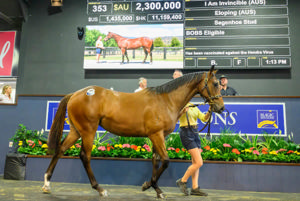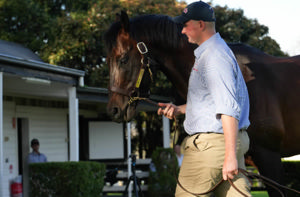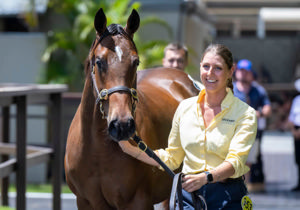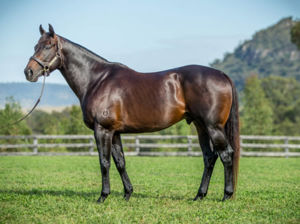Having sat through extensive TV commentary, a Budget Breakfast and read the economic gurus across the press, I feel obliged and confident to share the major take out from this 2018 Budget.
As it applies to the persons:
a) in the breeding and racing industry;
b) in the property industry; and
c) who have or are considering running their own Self-Managed Super Funds (SMSFs).
Our practice does extensive advising in all these areas and we know full well that many racing players also have property interests and SMSFs, so I hope there is something for everyone.
1. Deductions denied to vacant land
As part of the 2018 Federal Budget, the Treasurer announced that, from 1 July 2019 , the Government will deny deductions for expenses associated with holding vacant land that is being held for residential or commercial purposes.
This is an integrity measure to address concerns that deductions are being improperly claimed for expenses, such as interest costs , related to holding vacant land, where the land is not genuinely held for the purpose of earning assessable income. It will also reduce tax incentives for land banking, which deny the use of land for housing or other development.
Deductions that are denied under this measure will not be able to be carried forward for use in later income years. However, there is still tax effect for expenses for which deductions will be denied that would ordinarily be a cost base element (such as borrowing expenses and council rates) as they may be included in the cost base of the asset for CGT purposes when the property is sold.
Exceptions
This measure will not apply to expenses associated with holding land that are incurred after:
§ a property has been constructed on the land, it has received approval to be occupied and is available for rent; or
¡ the land is being used by the owner to carry on a business , including a
business of primary production .
The latter point above makes it clear that a vacant "back paddock" of the breeding or racing property can still attract deductions if it can be argued as being part of the "business".
The 'carrying on a business' exception above will generally exclude land held for commercial development. Alas, property developers in "business" should be comforted by this.
2. Further extending the small business immediate deductibility asset "$20,000" threshold
As background, the 2016 Federal Budget provided a temporary increase to the immediate deduction threshold for eligible assets acquired by small business entities (SBEs).
The accelerated depreciation rules for SBEs were amended to temporarily increase to $20,000 the $1,000 threshold under which certain depreciating assets, costs incurred in relation to depreciating assets and general small business pools can be immediately written off.
The $20,000 threshold was due to revert to $1,000 from 1 July 2018.
As part of the 2018 Federal Budget, the Treasurer announced on that the Government will extend the $20,000 instant asset write-off by a further 12 months to 30 June 2019 for businesses with aggregated annual turnover of less than $10 million .
This measure will ensure that small businesses will be able to immediately deduct purchases of eligible assets costing less than $20,000 first used or installed ready for use by 30 June 2019.
Note – this rule does not relate to the purchase of breeding stock in a business, but they can apply to those who buy racehorses in an eligible "Stand-Alone" racing business that has no associated breeding.
3. Increasing the maximum number of allowable members in SMSFs and small APRA funds
As part of the 2018 Federal Budget, the Treasurer announced that the Government will increase the maximum allowable number of members in new and existing Self-Managed Superannuation Funds (SMSFs) and small APRA funds from four to six.
This measure intends to provide greater flexibility for joint management of retirement savings, in particular large families who want Mum, Dad and the children to be members of the one fund.
4. Three-yearly audit cycle for "compliant" SMSFs
This is welcome news to SMSFs that must bear yearly compliance costs, but not great news to SMSF auditors!
As part of the 2018 Federal Budget, the Treasurer announced that the Government will change the annual audit requirement to a three-yearly requirement for Self-Managed Superannuation Funds (SMSFs) with a history of good record-keeping and compliance.
This measure will reduce red tape for SMSF trustees that have a history of three consecutive years of clear audit reports and that have lodged the fund's annual returns in a timely manner.
The Government will consult with stakeholders to ensure a smooth implementation of this measure.
Warning
Note – this measure does not mean SMSF trustees can "run amok" in the intervening two years that the fund is not audited, as there is still an overriding obligation for trustees to stay compliant with the laws in this area, e.g. SMSFs lending only nominal amounts to related parties and maintaining eligible and appropriate investments, that, sadly for some, does not include Racehorses!
Please contact me if you wish for me to clarify or expand on any of the matters raised in this article.
Prepared by: PAUL
CARRAZZO CA CARRAZZO
CONSULTING 801
GLENFERRIE ROAD, HAWTHORN, VIC, 3122 TEL: 1300 RIGHT TRACK FAX: (03) 9815 1899 MOB:
0417 549 347 E-mail: paul.carrazzo@carrazzo.com.au Web
Site: www.carrazzo.com.au










